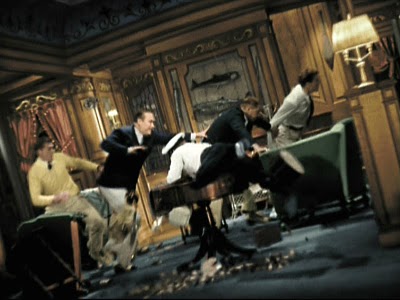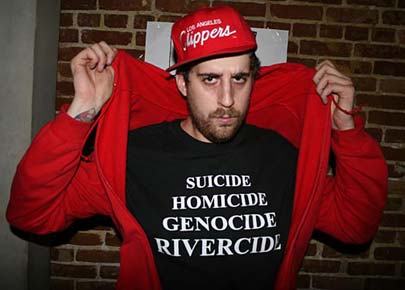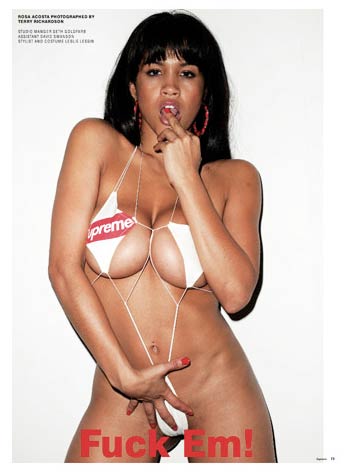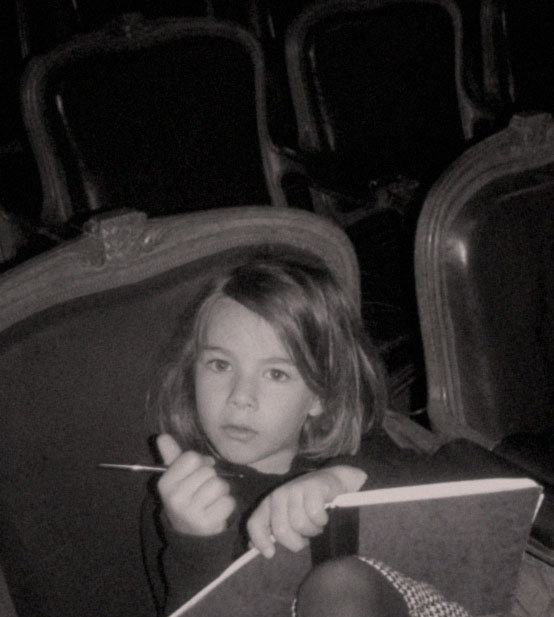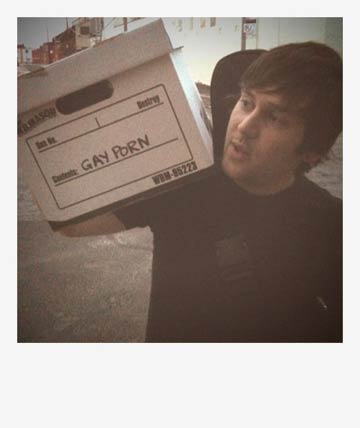
London, 1966: the apex of Mod, the year of Twiggy and Blow-Up. The neighborhood into which Nick Denton was born, Hampstead, was the citadel of the moneyed liberal intelligentsia, posh but not stuffy. In retrospect, it was the perfect place for Marika Marton to have ended up. Marton (whose son strikingly resembles her) had escaped the Soviet invasion of Hungary just ten years prior, in 1956. A woman of formidable intellect, she spoke Russian, German, and Latin in addition to English and her native Hungarian, and began studying economics—first at London University, then at Southampton—almost immediately after immigrating. At the second school, she fell in love with her economics professor, Geoffrey Denton.
From the outset, their son Nick found himself in a near-bespoke environment of cosmopolitan cool, where his kinds of otherness—Jewish, Hungarian—made him blend in rather than stand out. So it was with the private school he attended, University College School, which placed little value on family crests but sent yearly waves of graduates to Oxford and Cambridge. Which is what happened to Denton. (…)
Denton has become more of a mainstream media baron than he admits. These days, Gawker Media’s blogs net up to 17.5 million U.S. visitors per month, making the company America’s 45th most popular online property, well ahead of nytimes.com (55) or TMZ.com (59).
Gawker Media grew through the annus terribilis of 2009. It grew in 2010. (…)
Denton has been celebrated at Davos, has spoken at Murdoch’s exclusive retreat, and chatted with George Soros at a White House Correspondents’ Dinner.
{ NY mag | Continue reading }
For years after starting Gawker Media, the online publishing network, in 2002, Nick Denton ran the company out of his apartment, in SoHo. “He said, ‘If you run it out of your house, then no one expects anything,’ ” Denton’s friend Fredrik Carlström, the film producer and adman, told me. “ ‘If you have an office, people want stuff. They want cell phones, lunch breaks, beer on Fridays.’ ” Gawker Media was a deliberately fly-by-night operation: incorporated in Budapest, where a small team of programmers still works, and relying on elegantly jaded bloggers who considered themselves outsiders with nothing to lose.
Early contributors tell stories about bounced checks, and receiving payment straight from the A.T.M. The arrangement, many assumed, was a convenient hedge against potential libel claims. (Scarcely a week passes without one or more of Denton’s nine sites receiving a cease-and-desist letter.)
{ The New Yorker | Continue reading } |

Tyler Brûlé, the founder, chief executive officer, editor, and guiding tastemaker of Monocle, is running late, but even in his absence you sense him in the detail of his compact and carefully styled offices. Brûlé made his name as the editor of Wallpaper, once the house bible of loft dwellers and metrosexuals everywhere, a magazine with the subtitle, “the stuff that surrounds us.” (…)
Brûlé discovered his philosophy while dosed up with morphine in a hospital bed in Afghanistan in 1994. He was 25, a freelance reporter working on an assignment with Médicins Sans Frontières in Kabul, when a jeep in which he was traveling came under machine gun fire. He was shot several times in both arms—his left remains pretty much useless—and, while recovering, had time to contemplate his priorities. He distances himself from hallucinogenic visions of angels bearing style magazines, but suggests that he did, lying there, come to see what mattered most to him. The list included “friends,” “living in a great house,” and “wanting to travel and see the world.” The rest, he would argue, is magazine history.
Wallpaper helped define the tastes of the winners in the banking and technology booms. It combined an obsessive attention to the styling of household objects and hotel décor with an edge of distancing irony, a way of having it all. In 1997, after less than a year, Brûlé sold Wallpaper, begun on a shoestring budget, to Time Inc. (TWX) for a reported $1.63 million. By 2004, when he left, The New York Times could describe “the Wallpaper generation” and have people understand what it meant; Brûlé, at 33, had received a Lifetime Achievement Award from the British Society of Magazine Editors. After some acrimonious clashes, Brûlé says he was fired by Time over an expenses claim for a London taxi, while others recall it as a chartered plane; either of which is a little like disciplining Homer Simpson for eating a canapé.
He took with him most of his key editorial staff and Winkreative, a branding agency that had grown out of the magazine. At Winkreative, Brûlé had taken on the rebranding of Swissair in 2001 after its collapse—calibrating the look and feel of what became Swiss International Air Lines—and assembling a client list that ranged from BMW to designer Stella McCartney.
He planned Monocle, envisioned as “a trendy Economist,” from the beginning, but competition clauses delayed its launch until 2007. The hiatus gave Brûlé a period to devise a new independent funding model. In the beginning he went to venture capitalists and private equity. They all said the same thing: If it is going to be something that drives Web numbers, then great.
“I got a bit tired of hearing from 24-year-old MBAs how the world of media was going to unfold,” Brûlé says. “We had a Spanish client at the agency, and she came into the office one day. She is the Catalan matriarch of a family business, and she asked why there was a desk downstairs but no one working there. I told her about the idea for a magazine. She took the plan away and came back to say she would take 10 percent of the business on one condition: There had to be four other investors with similar stakes, they also had to run family businesses, and they had to be geographically diverse.”
Brûlé, never a man to shirk a challenge, came up with the appropriate investors from Australia, Sweden, Japan, and Switzerland. (…)
(Brûlé mentions in passing that Winkreative has just won a contract “to rebrand the country of Taiwan.”)
{ Businessweek | Continue reading } |














